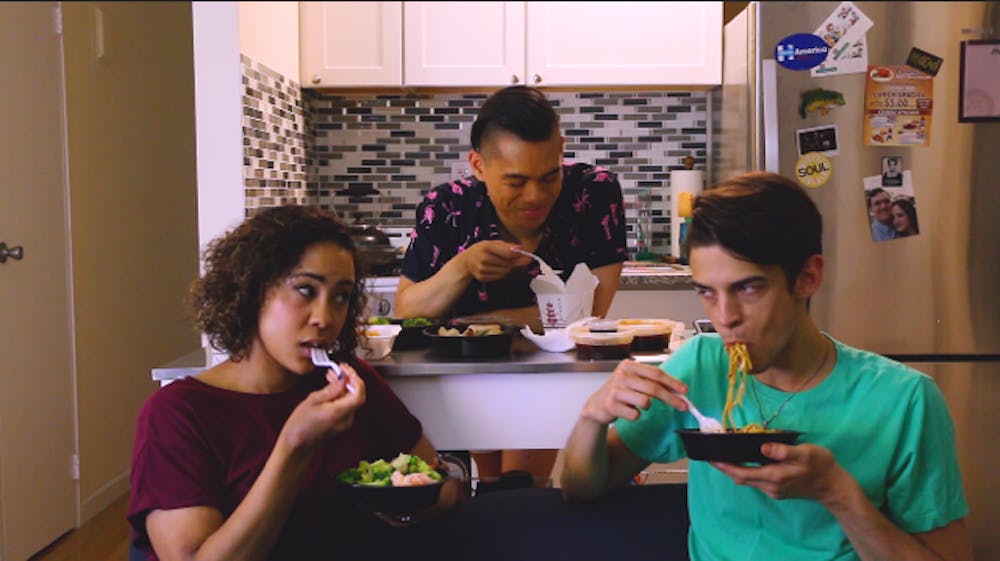When Tyler Dwiggins, a 2014 Ball State alumnus, watched shows like “Insecure,” “Girls” and “Friends,” he felt like something was missing. That something was a representation of LGBTQ characters.
In an effort to fill that void, Dwiggins took it upon himself to write a show that he wanted to see on television. That is when “Queen’s English” was born.
Dwiggins wrote a half-hour pilot that was eventually broken down into two separate web episodes. However, Dwiggins, who got his start writing plays at Ball State that funded The Trevor Project — a non-profit hotline working toward suicide prevention — found himself in unfamiliar territory.
“I just kind of really loved the characters, and wanted to dive into them more. I thought, ‘Why don’t I figure out a way to produce this myself with a team of artists,'” Dwiggins said. “I get to really dive into a series now rather than waiting years for someone to pick it up. I thought, ‘Let’s just see where this goes.’”
Dwiggins said the series, which airs on the YouTube channel Queen’s English, is about friendship. The show follows a group of 20-year-olds as they begin to define who they are through conversations on relationships careers and passions.
While the show animates the struggle to define certain topics within the LGBTQ community, it does so humorously.
“It’s called ‘Queen’s English’ because, obviously, the pun of queens within LGBTQ culture,” Dwiggins said. “The first [episode] begins with the definition of twink. Each episode begins with that Merriam-Webster style of definition. That was kind of the initial thought when delving into this world we haven’t necessarily seen on TV.”
Because it is online, the web series, which features Ball State alumni, allows it to reach audiences in rural areas as well as large cities. Ball State 2014 graduate Amelia Windom, who plays Olivia on the show, said it gives a voice for the 20-somethings in the LGBTQ community, as well as a place for them to play.
Her role, she said, coincides with her real-life story as an actor in a new city trying to figure out how she and the world sees herself. The character Olivia is trying to define a variety of aspects in her life, something Windom, who is biracial, found herself relating to.
“Coming out of college there was an awakening that happened for me, and the kind of roles I could play, could not play and should play. It’s something I’m still figuring out today,” Windom said. “I’ve been out of college four years now and I’m still figuring it out, where to place yourself because you don’t belong in one box or the other.”
Production of “Queen’s English” began in May using personal finances. Dwiggins said most of the first episode was created by asking for favors, though the drive behind LGBTQ-focused content was a significant part of the engagement of the overall crew.
“It allows them to tell stories with a sense of joy, heart, and I think that's really needed,” he said. “Storylines that follow the LGBTQ community tend to delve into a tragic or token characters. They were excited about doing something humorous or celebratory.”
With one episode currently finished and posted and four episodes filmed, “Queen’s English” will continue because more than $3,000 was raised using a crowdfunding campaign on Indiegogo.
Contact Pauleina Brunnemer with comments at pdbrunnemer@bsu.edu or on Twitter @pauleina15.




